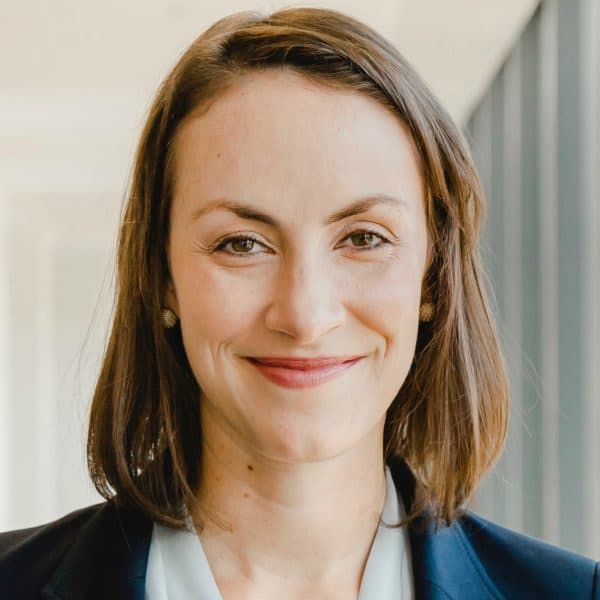Advertisement
Commentary
Good Childcare Is Out Of Reach For Too Many. It Doesn't Have To Be This Way

When my family moved from California to Boston this past July so I could pursue a full-time graduate degree, I was worried about a number of things. How would I balance my school assignments and my 1-year-old? How would we pick the right apartment from 3,000 miles away? Could we survive snow, much less “Snowmageddon?” I didn’t anticipate what would actually become our biggest hurdle: finding childcare.
From the half dozen daycare centers we identified, the application processes defied transparency. Every place had a waitlist, and when my husband and I reached out to ask where our child was in line, we were met with an awkward silence. “Oh no, I’m sorry, we can’t disclose that information.” And the prices were jaw-dropping. The cheapest in our area charged $2,600 a month, adding up to an astronomical $31,000 a year.
If you are a single parent or have more than one child, the models explode.
According to the Economic Policy Institute, Massachusetts ranks as the second most expensive state in the U.S. for infant care. With an average cost of $17,000 annually (or $1,400 a month), infant care costs almost 60 percent more per year than in-state tuition at a four-year public college. Interestingly, the U.S. Department of Health and Human Services sets a standard that childcare is “affordable” if it costs no more than 10 percent of a family’s income. By this measure, over 90 percent of Massachusetts families cannot afford childcare. If you are a single parent or have more than one child, the models explode.
It doesn’t have to be this way. Countries around the world are running sustainable, affordable care options. In Norway, universal childcare was first instituted in the late 1970s and is a common part of family livelihood. Childcare is guaranteed for every family and costs a maximum of $360 a month. Research-backed benefits include gains in family income — especially for low-income families, and substantially increased intergenerational income mobility. In South Korea, Austria, Greece and Hungary, government programs ensure childcare costs do not rise above 4 percent of a family’s income. In Japan, Prime Minister Shinzo Abe campaigned and won on the promise of free daycare for all children ages 3 to 5.
If mothers choose to stay home because of costs — not because of personal preference — it’s bad for women and bad for our economy. The average woman’s salary in Boston is $65,000, while for two kids childcare costs up to $72,000. After taxes, there is little to nothing left of her salary. If she has a partner with a better-paying career — and unfortunately, that’s the statistical case — it’s not logical for an average or low-wage working mother to stay in her job and leave her child with a stranger. In no time, the obvious question becomes: Is this job really worth it?
If Massachusetts ensured that families never paid more than 10 percent of their income toward childcare for children from 0 to 3, it could be revolutionary. It would also be a massive undertaking and hugely expensive. But the costs do not represent a net loss. There are significant gains to be considered.
The Economic Policy Institute suggests that capping childcare costs at 10 percent of family income would expand Massachusetts’ economy by 1.6 percent and generate over $7 billion of new economic activity. As a financial burden is lifted and women are empowered with the choice to work or stay home, it would not only improve familial happiness but local economic activity.
After months of no response from daycare waitlists, we signed up with a budding nanny-share company that facilitated family pairings and offered a slightly lower price than daycare. The guarantees of exceptional care plus a Montessori curriculum lured me in. I could not have imagined the horror to come. The ill-equipped nanny who was placed with our families was overheard swearing at the kids and strapped the other little boy in our share in a high chair in a dark room by himself after hours of crying. After learning of the incidents from our building’s concerned maintenance man, I fired her immediately.
That left me with a needy baby in my arms, a mountain of laundry and a stack of chapters to read for my classes. I panicked as the precarious life balance I’d constructed to go back to school in my mid-30s crumbled. My husband was our sole breadwinner and our only hope to afford the Boston rent. I wondered if I would have to drop out of school to care for our baby.
I wondered if I would have to drop out of school to care for our baby.
Luckily, the other mother in our nanny-share showed up at a local daycare at 7:30 a.m. to plead for two spots for our toddlers. In a whisper, the daycare representative said she could offer us the spots but we had 24 hours to make a decision, because we would be skipping the waitlist. In my post-traumatic state, any notion of fairness to the other families in line and all budgeting sense went out the window. (So did our son’s college fund.) We said yes.
The scarce public good of childcare should not be allocated only to the privileged, and those desperate enough to show up and beg. How many women give up on their professional calling because they can’t afford a nanny or daycare? How many moms working low-wage jobs will have to take on a second job to keep afloat and then spend even less time with their babies? Affordable childcare is not a problem just for Bostonians but for parents in cities and towns all across America. If countries around the world have figured it out, surely we can find solutions too. Given Boston’s role as an international educational leader, there’s no better place for this progressive initiative to start. What are we waiting for?
